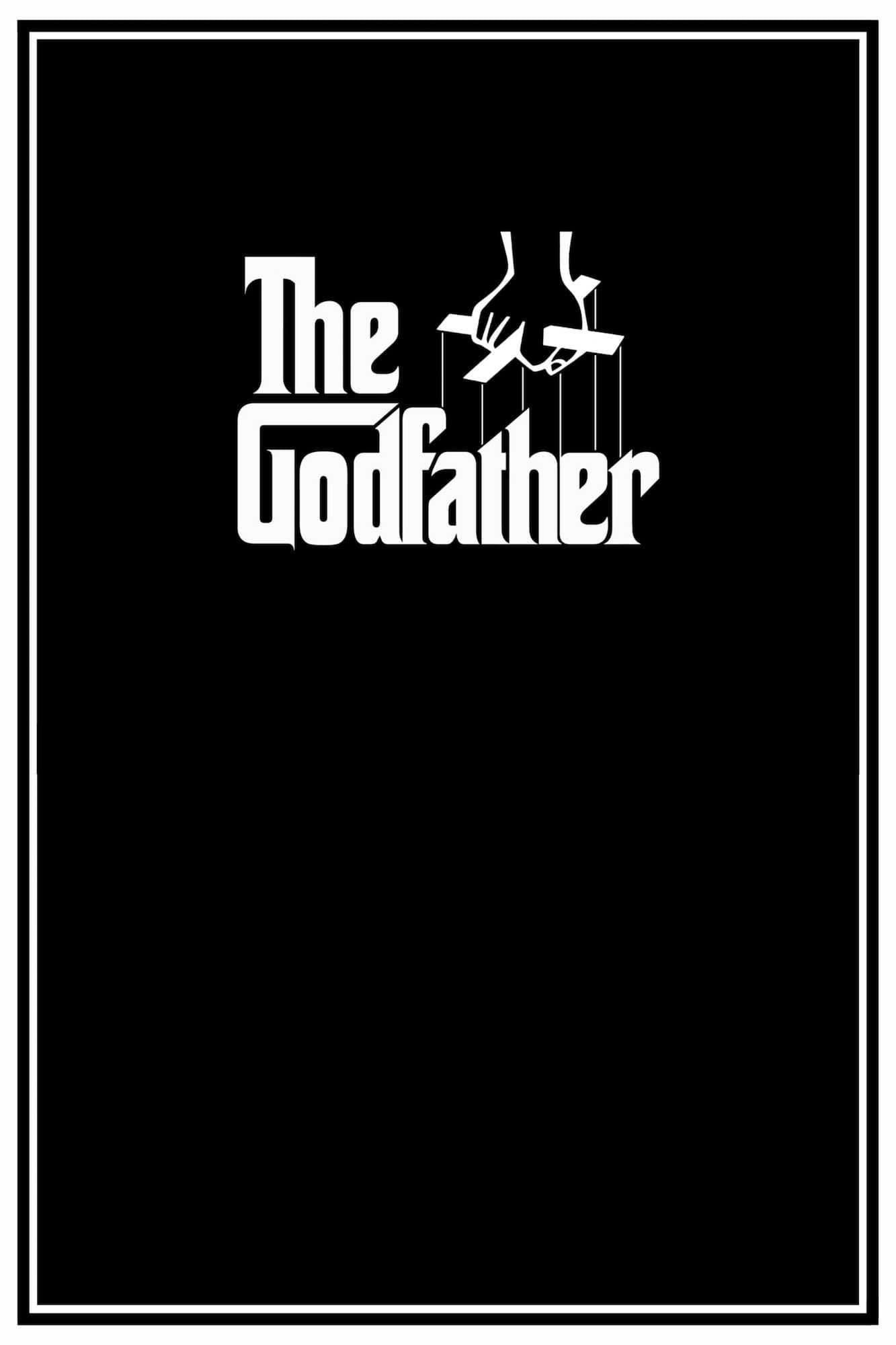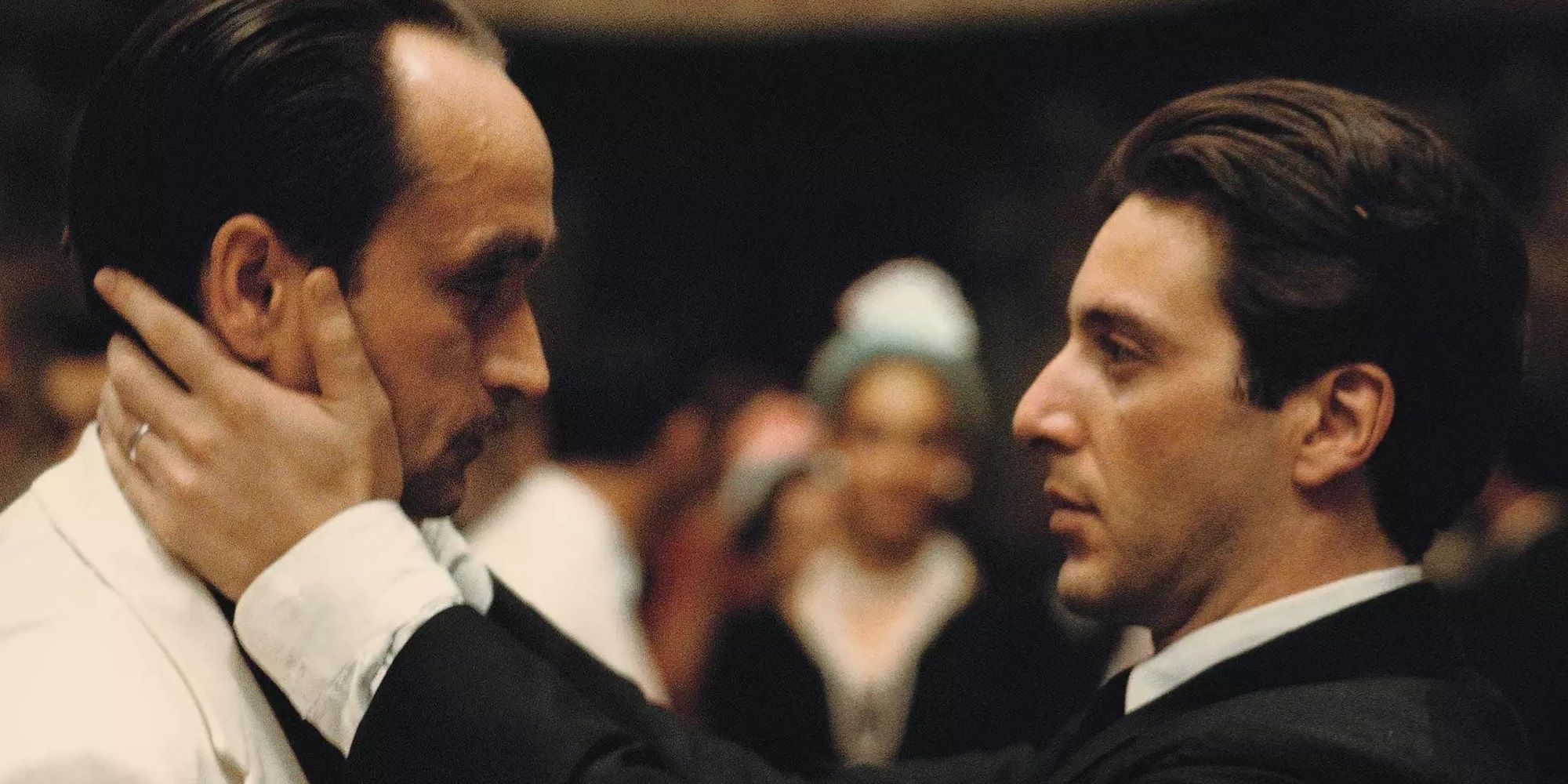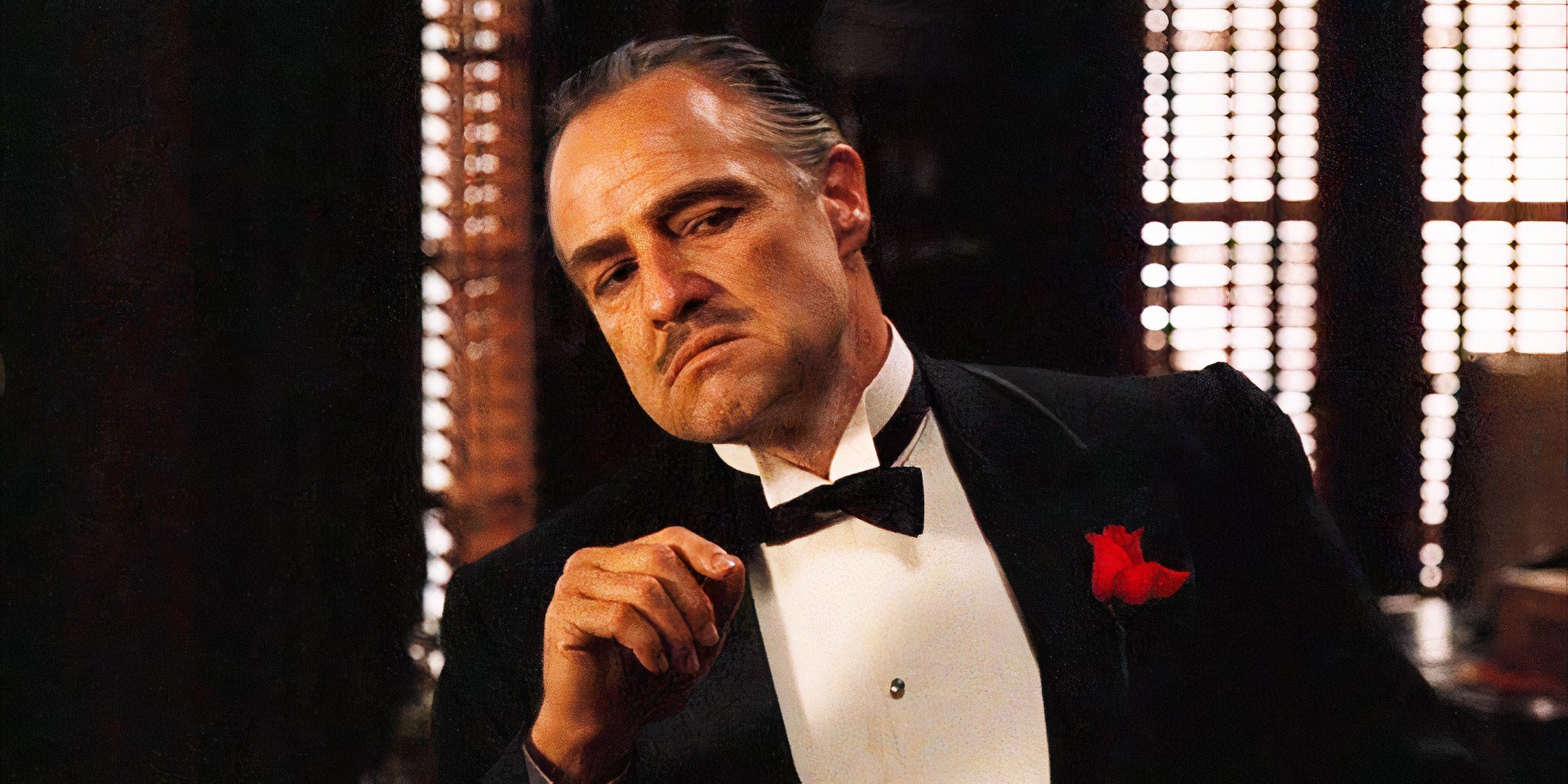Michael Corleone shared many traits in common with his father, Vito, but even Marlon Brando’s iconic The Godfather character would have refused to carry out Michael’s worst crime. While Brando’s swollen-jawed mafia boss remains synonymous with the Godfather movie franchise, the overarching story was really about Al Pacino’s Michael, who reluctantly took over from his father as the Corleone family’s don. Of Vito’s three sons – Sonny, Michael, and Fredo – Michael was the closest to his father in personality, displaying intelligence, patience, coolness, cunning, and leadership.
Like Vito, Michael occupied a middle ground between the hot-headed Sonny and the gaffe-prone Fredo, and it was these similarities that made Vito’s youngest son the ideal Corleone family successor. Nevertheless, Pacino’s protagonist was no mere copy of his old man. Sometimes subtly, sometimes less so, Michael Corleone evolved into someone markedly different to Vito both in terms of his personal life and his business interests. The Godfather‘s father-son split is demonstrated best by Michael’s darkest moment in the story – a situation Vito would have reacted very differently to.
Fredo’s Murder Was Michael Corleone’s Worst Moment In The Godfather Movies
Michael Never Got Over Fredo’s Death
The Godfather hid much of the mafia murkiness the Corleone family was guilty of. Given the nature of their business, however, it can be assumed that the murders and criminality orchestrated onscreen were just the tip of a very unpleasant iceberg. It feels inevitable that Michael would have been responsible, directly or otherwise, for the deaths of various individuals not involved with the mafia. In moral terms, one murder ordered by Michael is no more evil than the next. In the context of The Godfather‘s story and the acts Michael committed onscreen, however, Fredo’s death was his worst sin.
It’s one thing to lull an enemy into a false sense of security before making a move, but Michael pulled that trick on his own brother.
Showing no mercy to opponents was a core tenet of the Corleone family from the beginning, but so too was loyalty to family. That loyalty is precisely why Michael’s decision to have Fredo executed in retaliation for betrayal must be considered his worst crime across all three Godfather movies. In his defense, Fredo was not fully aware of what his underhanded dealings would mean, so while the middle brother deliberately sold Michael out, there was no intention of causing harm.
Fredo’s gullible nature was exploited by Michael’s enemies, and the situation snowballed into something far bigger than Fredo wanted. Consequently, Fredo showed immense remorse after being exposed as a traitor, and spent his days thereafter trying valiantly to earn back Michael’s trust. Fredo’s earnest attempt at redemption and the fact he never truly sought to endanger Michael’s life make his death in The Godfather Part II‘s ending all the more brutal, even by The Godfather‘s bloody standards.
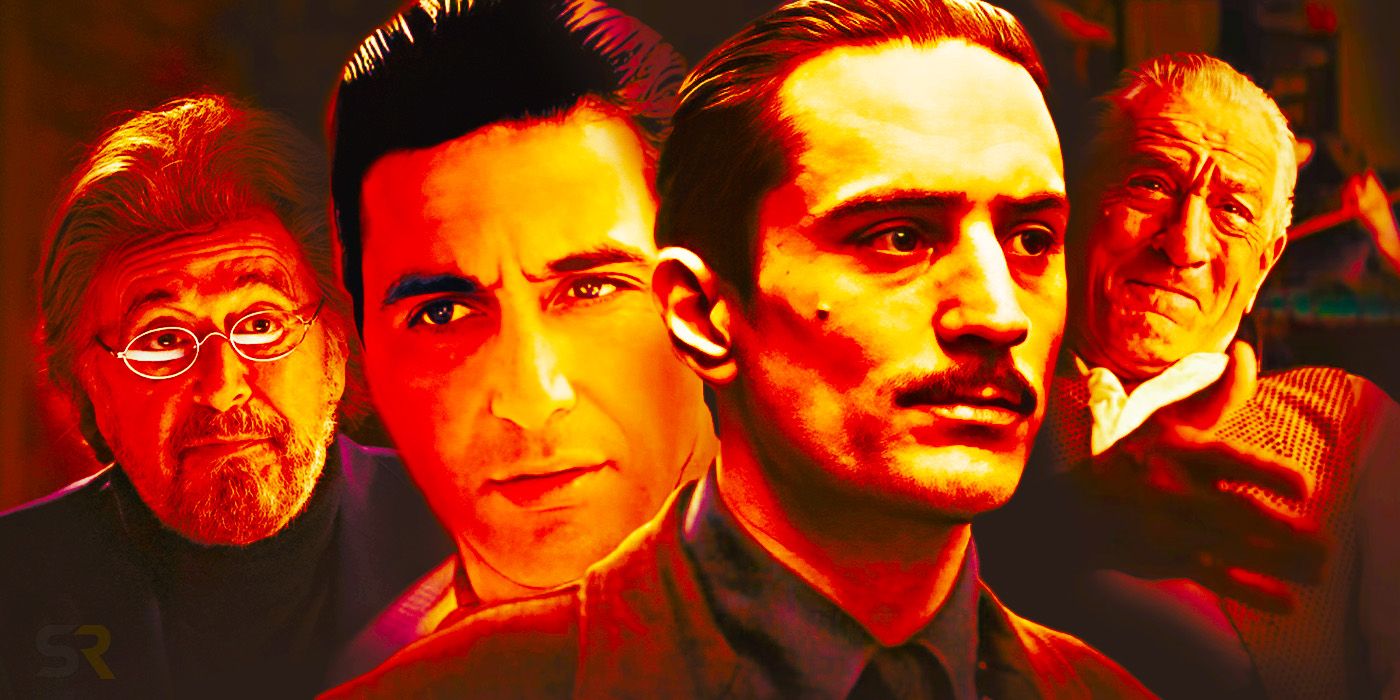
Related
What The Godfather Part 2’s Cast Have Done Since (& Where They Are Now)
Francis Ford Coppola’s The Godfather Part II has an exceptional cast who all later went on to star in dozens of significant movies and TV series.
It’s one thing to lull an enemy into a false sense of security before making a move, but Michael pulled that trick on his own brother, making the decision to have Fredo killed early on, then ignoring all mitigating circumstances before coolly seeing out his plan. Playing the long game makes Michael killing Fredo so much worse, as the don’s immediate gut desire for revenge cannot be blamed. Michael made the choice to assassinate Fredo in The Godfather Part II in the same logical way he would decide on a business deal.
Vito Would Never Have Made The Same Decision If He Were In Michael’s Position
It’s Unlikely That Vito Could Have Killed A Sibling
If the original Corleone don had an older brother who committed an act of betrayal, would Vito have plotted his sibling’s murder, or taken a different route? It’s impossible to say for certain, but all clues in The Godfather and The Godfather Part II suggest the latter. For starters, Vito always exuded a more compassionate aura. Whether talking to grieving friends or holding court at a family wedding, Vito’s capacity for murder and felonies was hidden by his approachable demeanor. In contrast, Michael retained a steelier, detached persona throughout The Godfather Part II & Part III.
Make no mistake, Vito was still a coldhearted killer – he would have ordered the death of Johnny Fontane’s bandleader over a contract squabble. Still, several lines from The Godfather suggest Marlon Brando’s character would have drawn the line at killing his own brother.
Were Vito in Michael’s position, he likely would have deemed it sufficient to exile his brother from the business and put him under surveillance.
After first speaking with Sollozzo, Vito reprimanded Sonny for acting out during the meeting, advising, “Santino, never let anyone outside the family know what you’re thinking. I think your brain’s going soft.” When Fredo made a similar mistake, Michael was far harsher, warning his brother, “Don’t ever take sides with anyone against the family again.” The two incidents were similar, but Vito clearly emerged as the more tolerant boss, giving Sonny a lesson where Michael gave a threat.
A second example can be found during Vito’s meeting with the heads of New York’s Five Families. Finally agreeing to enter the narcotics trade, Vito laid down certain rules that included keeping dealers away from schools. The scene typified Vito’s moral boundaries, as well as his willingness to sacrifice profit for values. The Corleone family made more money during Michael’s reign, but perhaps only because he dropped the ethical barriers upheld by his father, and that philosophy extended to killing a family member. The most compelling argument that Vito Corleone would not have killed his own brother, however, is that Fredo’s death was entirely unnecessary.
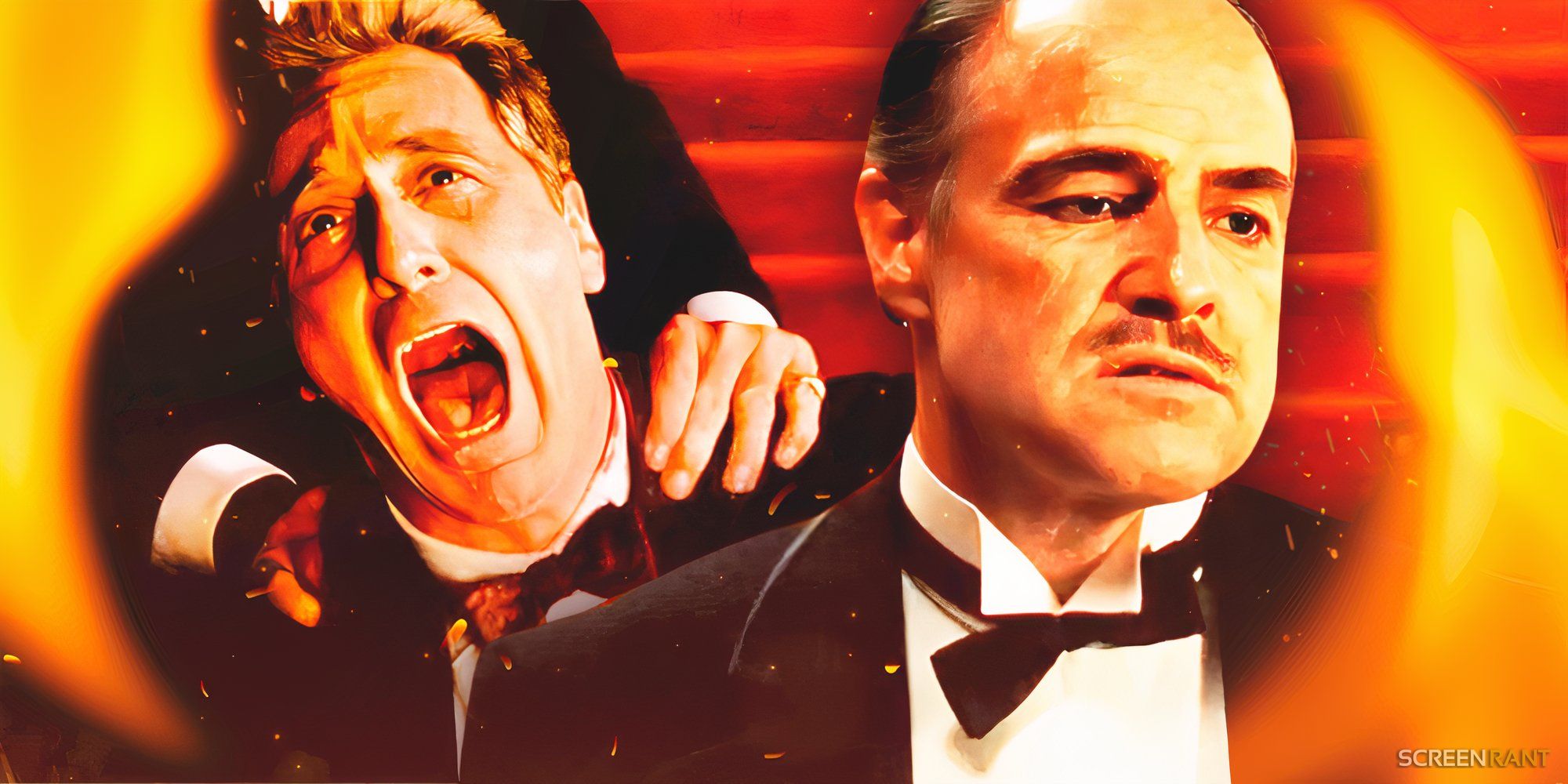
Related
Michael Corleone’s Death In The Godfather Revealed His Biggest Difference To Marlon Brando’s Vito
When Michael Corleone dies in The Godfather Part III, the biggest way he differs from his father, Marlon Brando’s Vito Corleone, is revealed.
Vito’s hands were bloody, but violence was generally his last resort – an unfortunate reality of the business to be used only when other options fail. When Michael arranged Fredo’s death, the decision was made partly out of revenge and partly to rule out future betrayals, but after Fredo accepted his guilt and tried to make amends, he no longer posed a realistic risk to the Corleone family. Were Vito in Michael’s position, he likely would have deemed it sufficient to exile his brother from the business and put him under surveillance, forgiving but never forgetting.
Michael Corleone’s Ruthlessness Was A Double-Edged Sword In The Godfather
Michael Succeeded… But At What Cost?
It cannot be said that Michael’s approach to running the Corleone family did not yield results. After the reigns were passed from father to son, the Corleones’ wealth, power, and influence multiplied many times over. From The Godfather to The Godfather Part III, the family transitioned from dealing with drug suppliers to dealing with the Vatican, illustrating its immense rise, and Michael’s ceaseless commitment to protecting his organization at all costs was a major factor in making that happen.
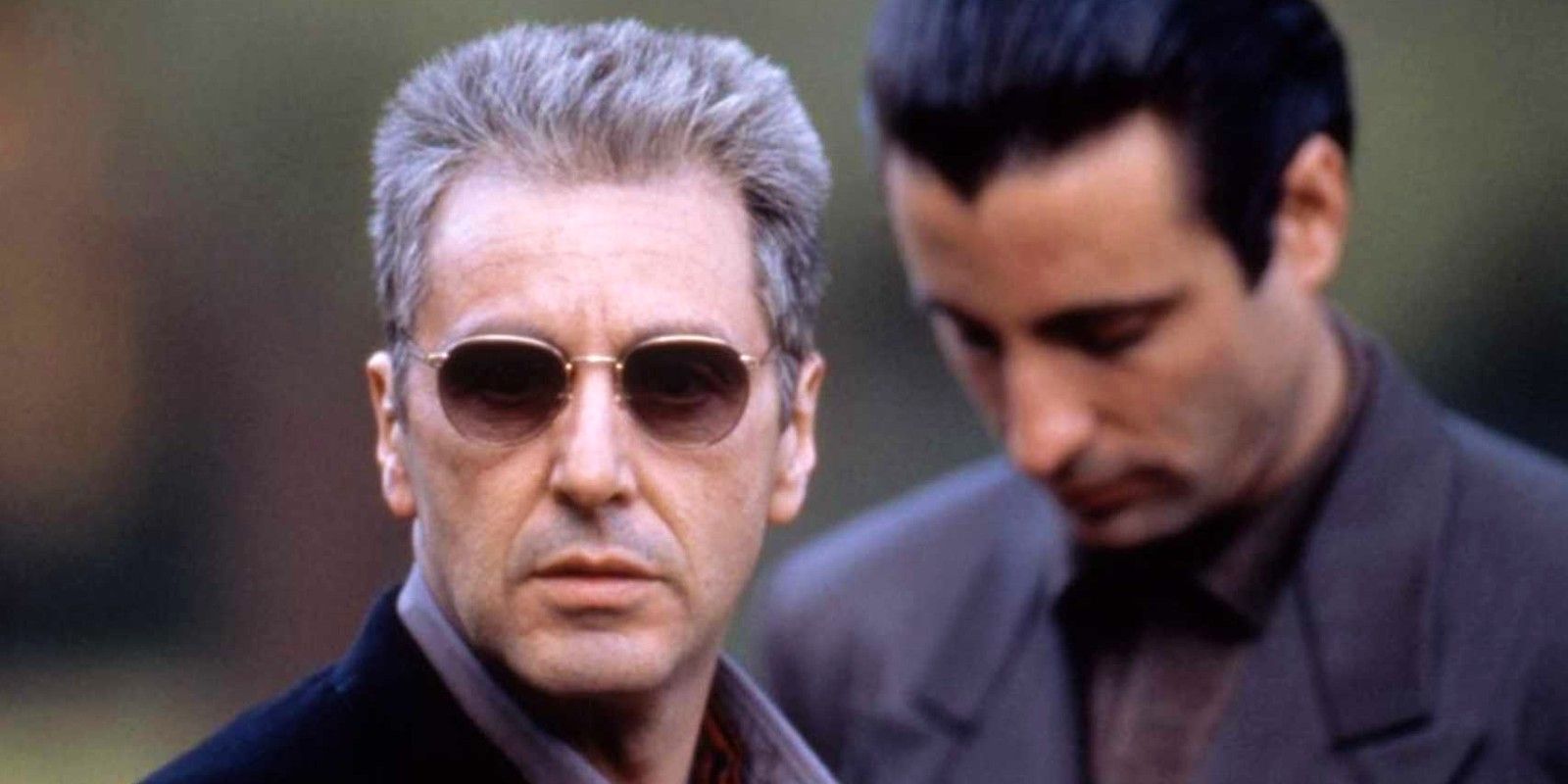
Related
10 Reasons The Godfather Part 3 Is Way Better Than You Think
Ever since its release in 1990, The Godfather Part III has been criticized. However, it isn’t nearly as bad as some people make it out to be.
Alas, Michael’s methods came at a great cost. While Vito certainly carried the emotional weight of the sins he committed, Michael suffered a huge outpouring of guilt during The Godfather Part III, regretting his past actions but especially remorseful over Fredo. Michael buckled under the weight of this trauma, as it visibly consumed him into old age. Vito’s conscience was far from clean, but having not murdered his own brother, it was clean enough that he could cope.
Michael’s path eventually culminated in a very different ending compared to the one his father received. Whereas Vito Corleone died in the presence of family during The Godfather‘s ending, enjoying his retirement, Michael ended his story miserable and alone in The Godfather Part III. Francis Ford Coppola let audiences decide for themselves whether Michael’s success in The Godfather was worth the price, or whether he would have benefited from following his father’s more compassionate example.
